- Home
- Bill James
Disclosures Page 4
Disclosures Read online
Page 4
The formal, ponderous ‘gun-engagement’ phrase sounded like officialese, an attempt to downplay the dodgy realities. And Esther felt the words, ‘I’ve called you together today,’ had a sort of churchy, pastoral flavour – ‘where two or three are gathered together’ – as if she were telling a group of the faithful which streets to letterbox-leaflet touting the next Roof Fund jumble sale.
‘We think the activity will start at the corner where Mondial Street joins Trave Square. Most of you will know this has been a disputed strip of territory for at least months, even a year, characterized by isolated, fairly trivial barneys between dealers from the two firms. It now looks as though both sides have decided such recurrent, flea-bite aggro is anti-commerce and has to end; and that the way to end it is by moving in with numbers and challenging the opposition to dislodge them. We are not sure so far which firm will act first. They might even agree a time for confrontation, like people fixing a duel. It would be a properly staged honour fight. We do know they are equally alert to the possibilities and are ready to resist any major grab by the other. So, yes, probably a macho pride issue as much as a business and money matter.
‘This is two champions – Piers Elroy Stanton, heading Opal Render’s contingent, and PU’s Dale Hoskins (Gladhand, as he’s known) – these two with their minions, aiming to wipe the other out, and his minions. The encounter would be required by both sides to prove courage, flair, decisive chiefdom, charisma, and, as an extra, to consolidate fully a hold for one of the firms on these few hundred magnificently fertile square metres. That bit of ground linking Mondial and Trave has become symbolic for both firms, and symbols are always a massive pain, able to motivate all kinds of mad extremism, frenzy and barmy heroics. This location includes, of course, The Bouquet club and The Mall and Red Letter pubs, all significant trading centres. We’ll take a look now. Next please.’
The voice on the tape paused. She had called for the screened street map to be replaced by a colour photograph of the Mondial-Trave corner. It was a picture she could still more or less visualize even so long after, idling here in the conservatory, half hearing the repetitive five-note racket made by pigeons in the winter-shrivelled trees. God, didn’t they bore one another senseless? She heard, too, from somewhere over the back fence a car engine start up, and the crying of a child – faint through the conservatory glass wall, but audible. The tape, when it resumed, helped her memory, of course. She had given a detailed commentary on the buildings and road where the information said it would all most likely start, and where now, later, comfortably on the conservatory padded lounger, she knew it certainly did start.
Architecturally, Mondial-Trave had been quite an impressive spot. Four high, grey-stone Victorian warehouses stood tastefully converted to flats, with the ground floors shops, a hairdresser’s, post office and a new car showroom. As a token, they’d left a projecting derrick near the top of one of the ex-warehouse facades. It would have been on a pivot and used to haul up goods for storing, and for lowering purchased loads to waiting carts. It didn’t function like that any more, of course. The derrick and its pulley were there to give a reminder of local history. Esther had liked this preserved link with another century.
She didn’t sentimentalize that period, knew some people, most people, had a hard, deprived existence then, and had very bad times at the dentist’s. But she admired the soaring tallness and solidity of these structures. She found their businesslike, towering proportions a sign of confidence, resolve, progress. And the fact that they could last so well and take on recently a new, modern role and nature had heartened Esther, brought her a good helping of general optimism. Plans could work out OK. Some plans, anyway. Her plans.
‘We assume – and it’s only an assumption – no information on this – we assume Pasque Uno will come in from the south via Baste Lane and Bertram Street, and Opal Render from the west via Charlton Road and Billigod Terrace. These estimates are based on the belief that each will start from their own established city sections, their home bases. My present thinking is that we’ll have two police units waiting out of sight, each of fifteen officers, seven armed in each, one first-aid trained in each. One party will be positioned behind foliage in Dorothea Gardens, the other in the basement of one of the apartment blocks.’
Her voice speeded, lost some of its casualness. She didn’t like talking about guns. ‘Our armament will be the Heckler and Koch MP-Five carbines and Glock Eighteen automatic pistols. Information so far ties Gladhand Hoskins and two others in his group to Beretta Ninety-Three-R automatic pistols, usable for single shot or three round volleys; and at least two Swiss MP-Nine machine pistols in the Opal Render team, though we can’t say yet who’ll have them. There’ll also be other pistols with both units, Brownings, Walthers, and Smith and Wessons. We count on being able to offer at least twice as much firepower as the two firms together.
‘We should have surprise. PU and OR will turn up very single-minded and focused, expecting to confront each other. The third party will confuse them. They’ll have to switch to wondering who’s the enemy. We should be able to let them know the answer to that while they’re trying to adjust.’
That had been a good prediction.
EIGHT
More Monty staff arrived, ready for when the heavy business of the day began. Ralph remained seated at his little desk behind the bar, reminiscing under The Marriage of Heaven and Hell. He took a mouthful now and then from a bottle of sparkling spring water. It was too early for his favourite serious drink, black-labelled Kressmann’s Armagnac.
He had a strange mixture of reactions as he thought back to earlier interesting moments in his career. Well, more than just interesting. ‘Important’ might be a better word, or even ‘crucial’. He’d certainly regard that body-bag kerfuffle around Mondial Street and Trave Square during his south-east London days as important and crucial to his personal history. No wonder that word ‘Mondial’ kept popping out from the back of his mind somewhere to disturb him. He felt more or less sure it was from this episode that the rotten, cruel, grossly unjustified nicknames, ‘Panicking Ralph,’ or ‘Panicking Ralphy’, had their disgusting, slanderous start. He must try to establish this, and wipe it out for good.
In some ways, he envied his younger self, the up-and-coming, very confident, but still novice, Ralph. And, as to names, for a while then he’d considered asking Margaret and other people to call him Raef, rather than Ralph. That alternative spelling and pronunciation of Ralph seemed to carry more class and pep. He’d had the idea it was adopted in many distinguished families, especially by a son commissioned in, say, the Horseguards, or a similar glam regiment: Captain Raef Longville-Chase, that kind of thing. He’d liked the sound of ‘Raef W. Ember’. The sharper, cleaner impact of the vowels in ‘Raef’ seemed to suggest someone gloriously devil-may-care. And the ‘f’ when it was ‘f’, not ‘ph’, had a more dashing, sexier edge. He had been so positive, forceful, optimistic then – ‘comfortable in his own skin’, as that weird modern phrase would put it. Who else’s skin could you be in, whether you were called Ralph or Raef?
During that Foundation Year on his mature student degree course he’d had to do a bit of everything, and, as well as phrases from The Grapes Of Wrath, Ember recalled and responded heartily to lines in a chewy poem that went something like this: ‘It was bliss in that day to be alive, but to be young was very heaven.’ Or possibly not ‘day’ but ‘dawn’. That was stronger, stressing the marvellous newness and unfolding promise of the experience.
And maybe ‘bliss’ came earlier, to emphasize it: ‘Bliss was it in that dawn to be alive,’ et cetera. Poets did that kind of thing. They were very used to dealing with words. Well, obviously: you couldn’t have a poem without words. They’d put them in a certain order, possibly an unusual order, to get extra impact. Probably, writing a poem could take weeks. The poet here wanted what might be termed a double whammy from ‘bliss’. So, ‘Bliss was it in that dawn to be alive.’ But to be young then produced n
ot just bliss but bliss-plus; a big plus. Absolutely!
Ralph shared the heartfelt, nostalgic emotion. It matched his memory of a continuous rapture he’d enjoyed during the first year or two of his entry into vigorous, very private, private-sector, commercial life, dealing capably in the substances, cash only, same place and time next week, ‘and have the money ready in your hand so we’re not hanging about and obvious doing the deal.’ Yes, private private-sector. This had been his splendid ‘dawn’. He came to realize then that he’d been born with a vocation for such work, similar to a priest’s in the church, or the poet’s. It had made Ralph feel chosen, privileged, separated off from the general crowd. He’d sensed he had a special destiny, and he had been entirely ready to go out and meet it.
Obviously, the eight-round Walther P38 automatic hadn’t represented the essence or core of that wholly satisfying commercial life he was starting, but it was a significant fringe factor, more than an accessory. And so, Ralph had decided he should get nicely familiar with it. The prospect delighted him: first, careful hesitation in picking the right gun and then swift decisiveness. He’d immediately planned a practice shoot in a stretch of woodland he’d walked near Orpington to improve aim and to gauge and cater for recoil. Accuracy beyond six or seven metres with a handgun was worryingly unreliable, unless you’d been marksman trained. But, he’d thought – correctly thought, as things turned out – he’d thought the action around Mondial-Trave would be within that kind of distance, truly face to face, face to blast-away face and, therefore, half a day spent getting to know the Walther had to be worthwhile; getting to know not merely its comradely feel and shape, but its practical, wipe-the-Opal-Render-bastards-out-before-they-can-wipe-you-out potential.
Although he still disliked the description of a gun as an extension of some people’s actual physiques, a well-managed pistol could be a valuable aid, a vital standby. Bliss was it in that dawn to stay alive, and a Walther nine mm might help. This eager wish for intelligent mastery of the gun was part of his happy approach to the grand business chance he’d been offered. He would strive to excel. This would be like an apprentice ballet dancer practising, striving, yearning for perfection and ready to work at it unrelentingly. Bliss was it in that dawn to be alive, but to be young and part of a dynamic, established, commodities trading company, supremely ready to hit shit out of any dangerous, invasive competitor, was very heaven; especially if sweetly backed by an automatic and a good stock of ammo. Obviously, the poet couldn’t go in for that kind of thinking.
And, as William Blake had noticed when doing Ralph’s overhead, sheltering, Monty collage illustrations, there was heaven but also hell, and the two sometimes lay very close together, as in what he termed a ‘marriage’. Yes, it had been fine – very heavenly – to become part of the Pasque Uno organization; but what about the appalling, vindictive – very hellish – results of that PU operation, and the contemptuous name-tab/-tabs, stuck on him afterwards: the dual-version ‘Panicking’ smears?
And they were smears, weren’t they? They had no basis in truth, surely. Occasionally, in rather harsh self-scrutiny moments, he did wonder whether only someone deranged by panic could have had the William Blake anti-hitman, save-my-skin bastion installed. Would the young Ralph have caved in so flagrantly to fear like that? Would he have cowered under it, as some would say Ralph was cowering now? Yes, some would say it, some would sneer and insultingly deride this special defence device. It was as if they thought he should have it painted yellow, to proclaim his funk.
Not long ago a rum-sloshed, giggling Monty member wagging a pistol like a sword had fired a couple of shots from a .38 Smith and Wesson at The Marriage of Heaven and Hell from the bar, holing one of the Blake figures very badly in the beard and creating a real hazard for club customers through whining ricochets off the impenetrable metal. Those bullets came back with ten times the power of a returned service in Grand Slam tennis. An almost full bottle of Worcestershire sauce used in Bloody Marys caught one of these diverted rounds, causing glass splinters to fly as well as brown liquid to splatter on another member’s T-shirt and arm and on the play-surface of a pool table, which would require delicate cleaning.
The sod responsible was instantly banned for ever from The Monty, on health and safety grounds, although he apologized almost at once and offered to get the T-shirt laundered and find and pick up the sharp, Worcestershire shards. He wanted to pay a thousand compensation into club funds – meaning Ralph’s – for the distress and peril involved, and vulgarly brought a roll of fifties and twenties from his pocket, but Ember refused. For one thing, how could he tell where that loot originated?
Altogether, it was one of those incidents that Ember considered could never take place at The Athenaeum or even The Garrick in London; the kind of incident he was determined to eradicate. The Athenaeum might have members who routinely packed a piece – say top officers from one of the secret security services – but they were unlikely to get pissed and then start pot-shotting at something designed to bring security itself, supposing The Athenaeum had such an item of decorated strategic equipment; unlikely, he thought.
Yes, didn’t that S. and W. idiot typify other idiots who seemed set on offending Ralph? They could be squashed, though. He began to recover from his doubts and self-blame. OK, maybe the younger Ralph would not have had the bullet-blocking strip put in place. But the young Ralph had been … had been … young. That meant gravely lacking experience. That meant casualness, carelessness, foolish blaséness. It meant the passing wish to be audacious, cocky Raef, aiming to win a peerage for services to snorting. It meant having collected few serious enemies, if any so far. It meant no proprietorship of a famed, esteemed club, such as The Monty, and the target this might be to such enemies. It meant someone only at the bottom of the career ladder and unable to see from there the absolute need for that benignly robust, hoisted barricade.
The name Ralph, as Ralph, not Raef, had its own considerable qualities. He’d been told it came from the Norsemen many centuries ago and one half meant ‘counsel’, as in worthwhile advice, and the other half ‘wolf’ – so, maybe, ‘wise wolf, leader of the pack.’ That was quite an impressive reputation, and one he believed suited him so much more than ‘Panicking Ralph’ or ‘Ralphy’. He believed most reasonable people would agree.
NINE
Just before the Mondial-Trave set-to Dale Hoskins had taken Ember and a couple of the others from Pasque Uno out to reconnoitre the slice of ground where the fighting would most likely centre itself. They knew the area well already, of course, because both firms did a lot of dealing there. It was the natural site for any confrontation. The Bouquet Club and two pubs provided true hives of rich business. Also, street commerce went on very vibrantly there, and in Dorothea Gardens, a delightful park with mountain ash and eucalyptus trees, a clear water stream, a bowling green and children’s swings and climbing frames. Ralph thought it immensely heartening to see such a beautiful environment on the one hand and the trade on the other brought happily together like that.
But now they had to look at Mondial-Trave and the Gardens as a probable urban battleground, not a prime, consistent marketing venue. Ralph felt the roles were utterly different, just as in the Great War a field at, say, Ypres, could have been regarded originally as simply a field, part of the agricultural scene; but later only as a key piece of no man’s land to be battled for by mighty armies.
A monument of Richard Robert Laucenston, a Victorian alderman wearing robes, stood in front of the converted warehouses, perhaps the owner when they ran their former trade. Ralph had seen the sculpture before and admired it: another link with that bustling, workaday, enterprising past. Feet wide apart, crouched slightly forward, as if about to bullock his way ahead for further business quests and triumphs, the alderman usually gave Ralph a terrific thrill of fellow-feeling, a kind of across-the-decades empathy. This was entirely selfless admiration because Ralph believed that unless there was real progress in legalizing the substances h
e was never himself going to get a city monument. It would be tricky for Ralph or anyone else in Pasque Uno, or for any other devotee of the trade, to be given that kind of recognition if attitudes remained as they were at present.
Now, though, Ember experienced more than a brotherhood bond with the alderman. He noted the stone impenetrability of the monument, saw it as a good piece of cover, something you could pop out from behind and fire your burst, then nip back fast and get the hard bulk of the plinth and Laucenston’s legs and lace-ups between you and retaliation. The retaliation could be severe if rumours about Opal Render’s weaponry were correct.
Alderman Laucenston, 1847–1899, had obviously been a solid citizen in the sense of public spirited and honest, but now that solidity had taken on a new meaning – a more concrete meaning, you could say – and might get helpfully between Ralph and an Opal Render bullet or – more probable – bullets. Ralph thought the alderman would understand totally the need for his statue to be adapted to this particular use for a day. Wasn’t substantial commercial progress the purpose of PU’s and Ralph’s coming fight? That must have been the main theme in Laucenston’s own fine career. In fact he would return – reciprocate – the deep approval Ember usually offered to him. He’d prize Ralph as someone who knew how to live with the changes of time, such as the presence of machine pistols, blood on the pavement, perhaps, as well as cascading fragments from a monument and its plinth caused by volleys.

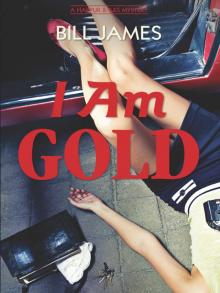 I Am Gold
I Am Gold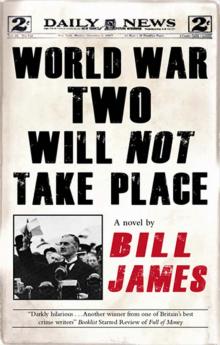 World War Two Will Not Take Place
World War Two Will Not Take Place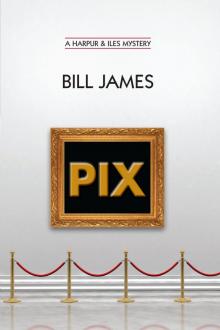 Pix (Volume Book 24) (Harpur & Iles Mysteries)
Pix (Volume Book 24) (Harpur & Iles Mysteries)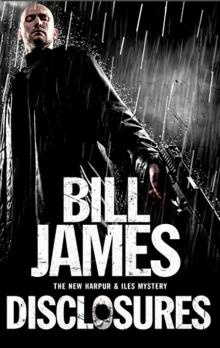 Disclosures
Disclosures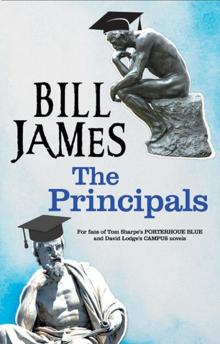 The Principals
The Principals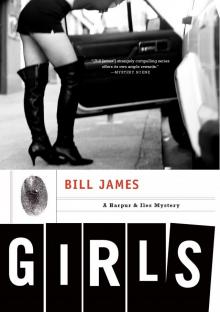 Girls
Girls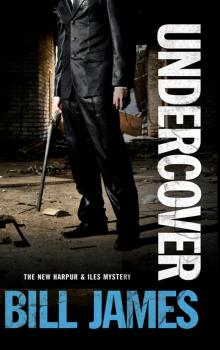 Undercover
Undercover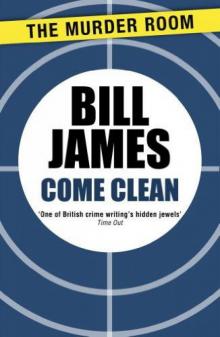 Come Clean (1989)
Come Clean (1989)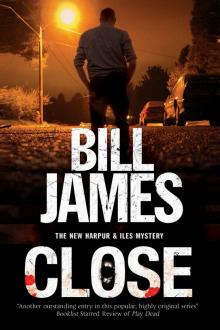 Close
Close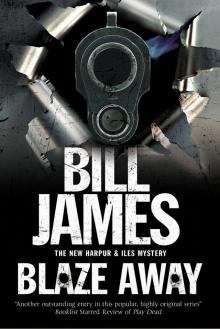 Blaze Away
Blaze Away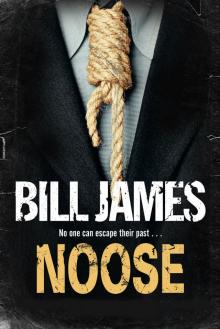 Noose
Noose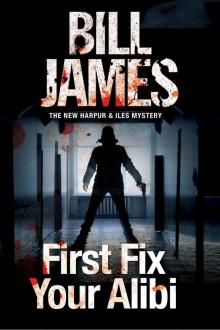 First Fix Your Alibi
First Fix Your Alibi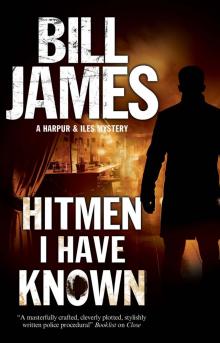 Hitmen I Have Known
Hitmen I Have Known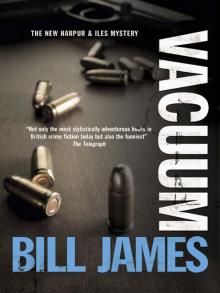 Vacuum
Vacuum Play Dead
Play Dead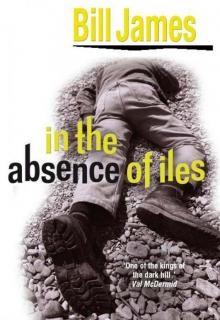 In the Absence of Iles
In the Absence of Iles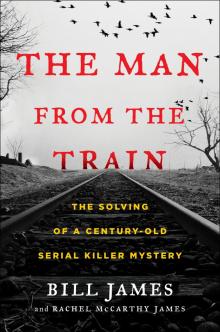 The Man from the Train
The Man from the Train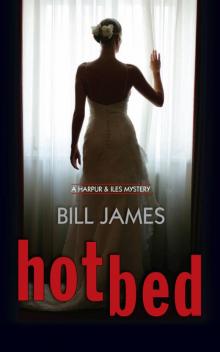 Hotbed
Hotbed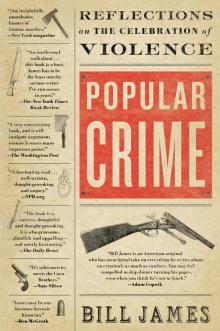 Popular Crime
Popular Crime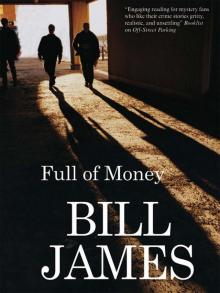 Full of Money
Full of Money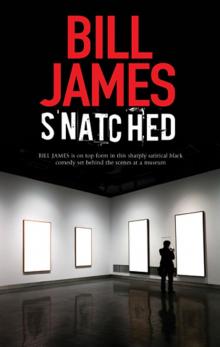 Snatched
Snatched